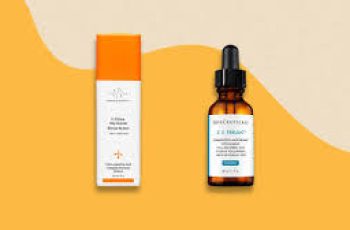
Why Do I Need Two Different Face Cleansers in My Skincare Routine?
Understanding the importance of using two distinct face cleansers in your skincare regimen can significantly improve your skin’s health and appearance.
Many people wonder if having more than one cleanser is necessary. The simple answer is yes, and this is due to the different roles your skin plays during the day versus at night.
Why Two Different Cleansers in My Skincare Regimen?
Your morning and evening skincare routines usually serve different purposes, which calls for different cleansing methods.
In the morning, the goal is to prepare your skin to face environmental stressors like sunlight, pollution, and the natural oils that build up overnight.
Conversely, at night, cleansing focuses on thoroughly removing sunscreen, makeup, excess oils, and dirt accumulated during the day.
Some skincare ingredients work best under specific conditions. For example, certain active compounds may degrade or irritate your skin if exposed to sunlight, so they are better suited for nighttime use.
Because of these variations, the type of cleanser you use in the morning should differ from what you use at night.
Your Skin Type Dictates the Best Cleansers for You
Choosing the right cleansers also depends largely on your skin type. The Baumann Skin Type system is a useful framework to identify your specific skin characteristics.
People with oily skin require cleansing products that can manage excess sebum without stripping the skin, while those with dry skin need gentler cleansers that hydrate and protect the skin barrier.
If you’re unsure about your skin type, many online quizzes and dermatologist consultations can help you determine the best products tailored for your skin’s needs.
Why Do We Recommend Two Different Cleansers?
When dermatologists design a skincare routine for you, they often recommend two different cleansers to optimize your regimen.
The rationale behind this recommendation lies in the varying skin needs throughout the day and the types of products you apply after cleansing.
The cleanser you use impacts how well subsequent products—like serums and moisturizers—absorb into your skin.
A cleanser that is too harsh or disrupts your skin’s pH can reduce the effectiveness of these follow-up treatments.
For example, some powerful active ingredients like retinoids can make your skin more sensitive. If your evening cleanser is also a strong exfoliant, it might worsen irritation caused by retinoids.
Therefore, choosing the correct cleanser that complements your other skincare products is essential to maintain healthy skin.
How Cleansers Affect Your Skin
Cleansers do more than just remove dirt. They can alter your skin’s pH, influence exfoliation, and affect the skin’s protective barrier.
Because of these impacts, using one cleanser all day might not be ideal.
Using different cleansers at morning and night helps balance cleansing with skin protection.
Morning cleansers tend to be gentler to avoid stripping natural oils and prepping the skin for antioxidant serums or sunscreen.
Evening cleansers are usually stronger to ensure all makeup, pollution, and sunscreen residues are effectively removed.
Our team of dermatologists has spent decades curating effective AM and PM cleansers to cater to diverse skin types and concerns.
Following their advice helps achieve clearer, healthier, and more resilient skin.
Should You Use Both Cleansers Together?
Many people confuse the idea of having two cleansers with the practice of double cleansing. Double cleansing involves using two cleansers consecutively in one session, usually in the evening.
However, the recommendation of two cleansers refers to using one cleanser in the morning and a different one at night, not using both at the same time.
Double cleansing is beneficial in specific cases, such as for heavy makeup removal or oily skin, but should only be done if advised by a skincare professional.
We will cover double cleansing in detail in another article, but for now, focus on understanding why morning and evening cleansers differ and how to use them effectively.
Differences Between Morning and Evening Cleansers
Morning Cleansers
Your morning cleanser’s job is to gently cleanse away sweat, oils, and impurities that accumulate overnight. It should also prepare your skin to receive antioxidants and other daytime products.
Antioxidants are commonly used in morning routines to protect skin from free radical damage caused by sun exposure and pollution.
Vitamin C is a favored antioxidant due to its brightening properties and ability to fight premature aging. Other antioxidants include caffeine, coenzyme Q10, grapeseed oil, resveratrol, and vitamin E.
To maximize the effectiveness of a Vitamin C serum, your morning cleanser should be low pH, ideally between 2 and 2.5, because Vitamin C penetrates better at this acidity level.
Examples of low pH cleansers include those containing hydroxy acids (like AHAs), polyhydroxy acids (PHAs), and salicylic acid.
These ingredients gently exfoliate and prepare skin to absorb antioxidants effectively.
If you have sensitive skin, a mild cleanser with soothing, anti-inflammatory ingredients might be better to avoid irritation.
It’s important to avoid retinoids in the morning since they can increase photosensitivity and damage your skin barrier when exposed to sunlight.
Which morning cleanser is best depends on your specific Baumann Skin Type and the other products in your routine.
Evening Cleansers
At night, your skin needs a deeper cleanse to remove makeup, sunscreen, dirt, and pollution that build up during the day.
Evening cleansers are typically stronger than morning ones but should be chosen carefully based on your skin type.
For oily skin, an evening cleanser must effectively remove excess sebum and impurities without stripping the skin.
Oily skin often benefits from foaming cleansers that deeply clean the pores and control oil production. Many evening routines for oily skin also include retinoids, which should be applied after cleansing.
If you have dry skin, evening cleansers should be gentler to protect the skin barrier and prevent dryness or irritation. Creamy or low-foam cleansers that maintain moisture are ideal.
These tend to have a higher pH, which is less compatible with Vitamin C serums, making them more suitable for nighttime use.
Choosing the right evening cleanser for your skin type ensures your skin stays balanced, clean, and ready to absorb nighttime treatments.
Tailoring Your Routine to Your Baumann Skin Type
The Baumann Skin Type system classifies skin based on oil production, sensitivity, pigmentation, and wrinkle tendency.
Your personalized skincare routine, including your choice of cleansers, should reflect your unique skin profile.
General rules about morning and evening cleansers may vary depending on your skin’s specific needs.
Following the customized advice given by a dermatologist or a tested skin type quiz will ensure you use the right cleansers and products for maximum benefit.
Summary
Using two different cleansers, one in the morning and another in the evening, helps optimize your skincare routine by addressing the distinct needs of your skin at different times of the day.
Morning cleansers prepare your skin for protection against environmental damage, while evening cleansers focus on deep cleansing and removing residues.
Choosing the right cleansers depends on your skin type, the products you use, and your lifestyle. Consulting with dermatologists or taking a detailed skin quiz can guide you to the best regimen.
By adopting this approach, you improve your skin’s health, enhance the effectiveness of your serums and creams, and reduce the risk of irritation or dryness.


